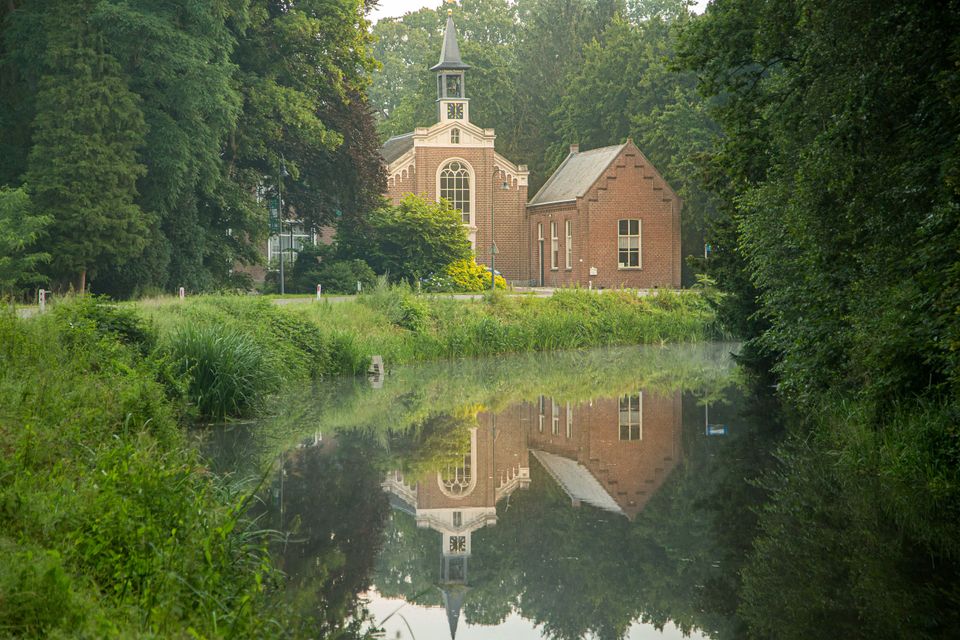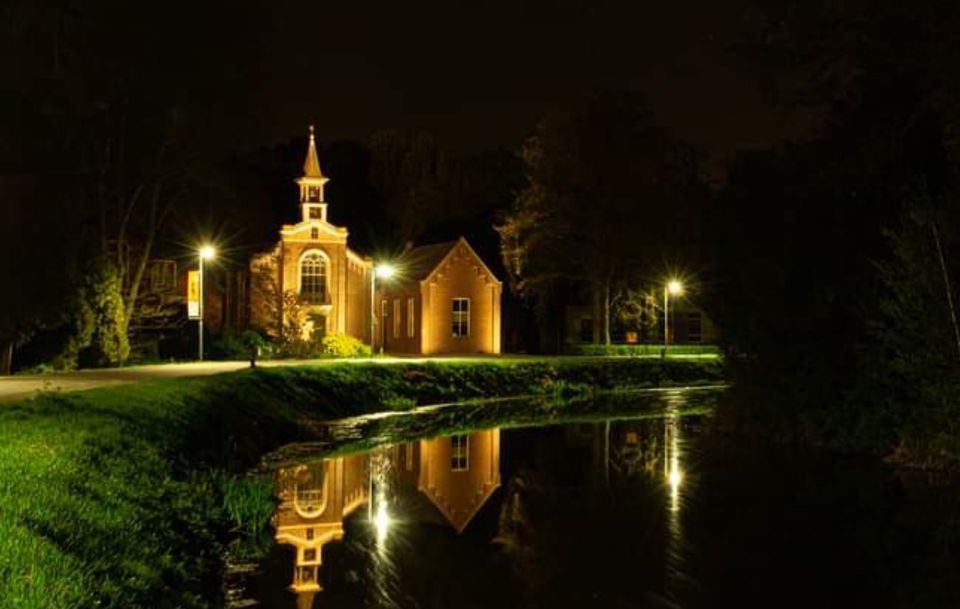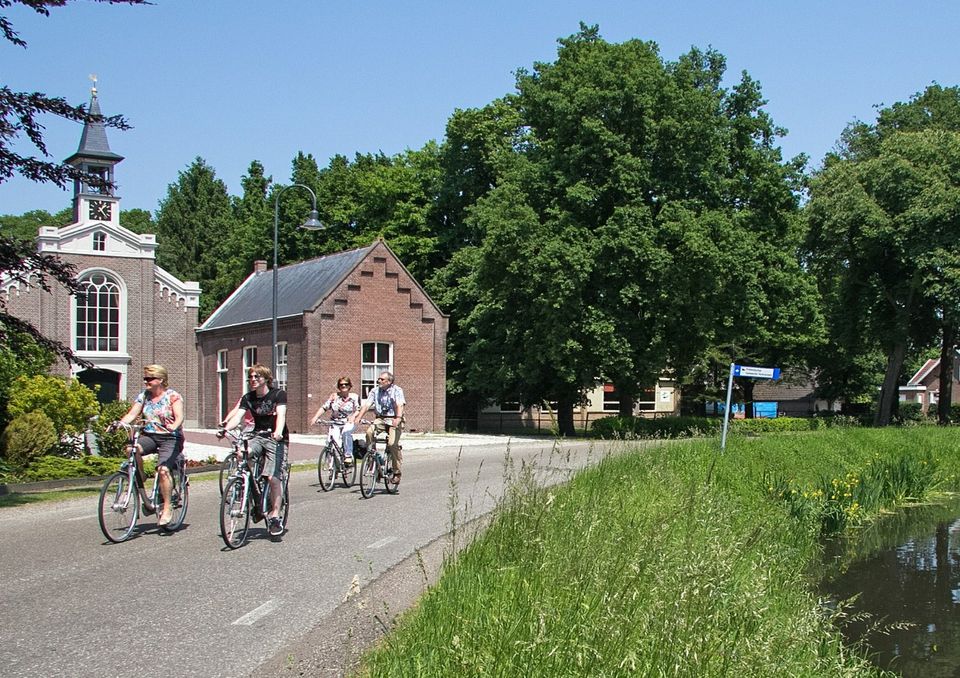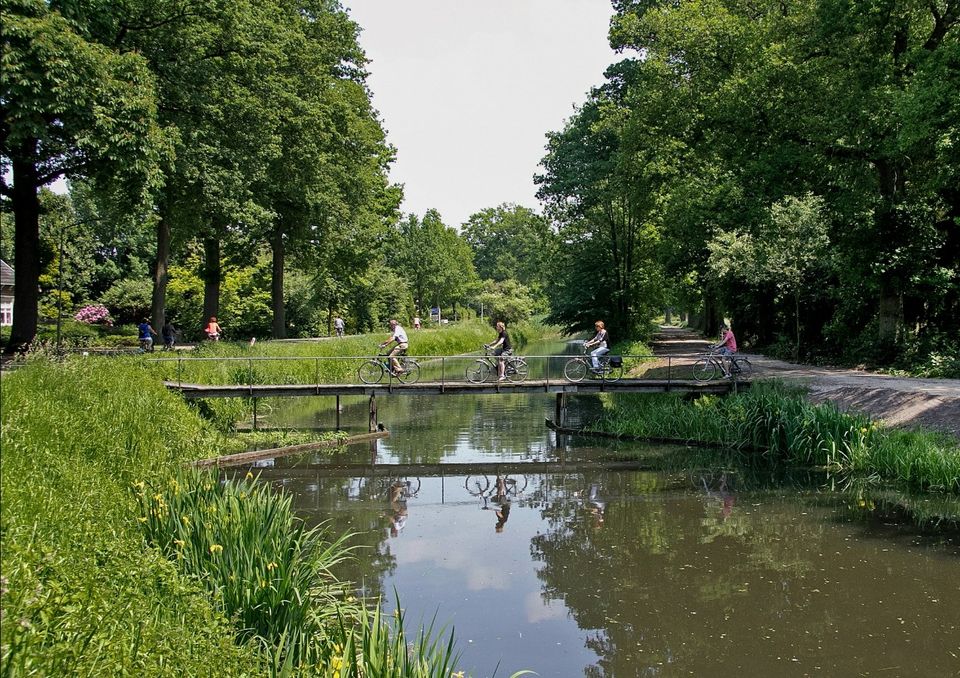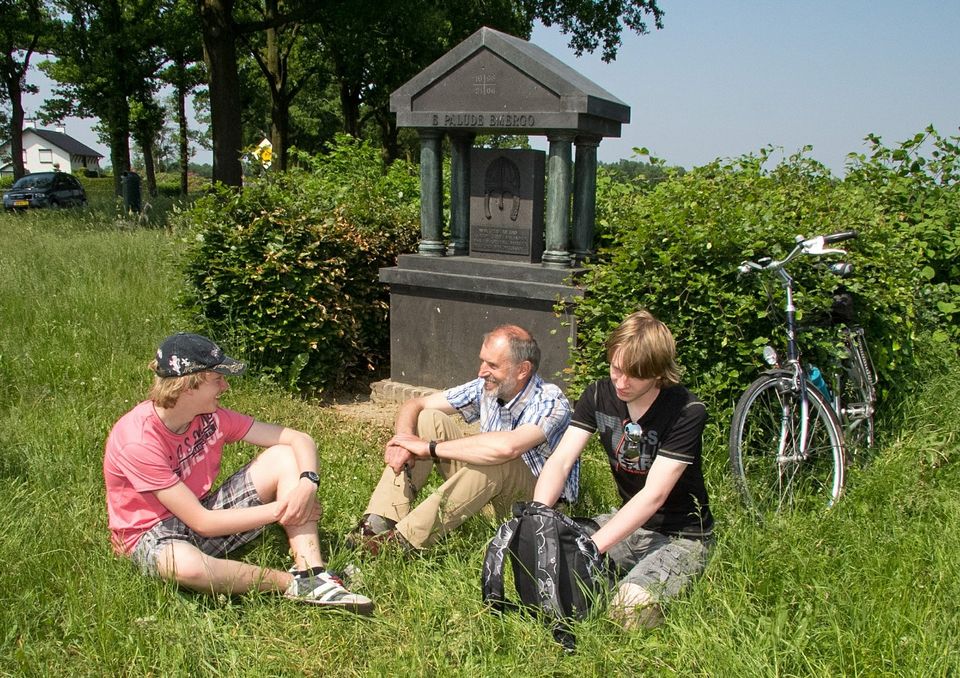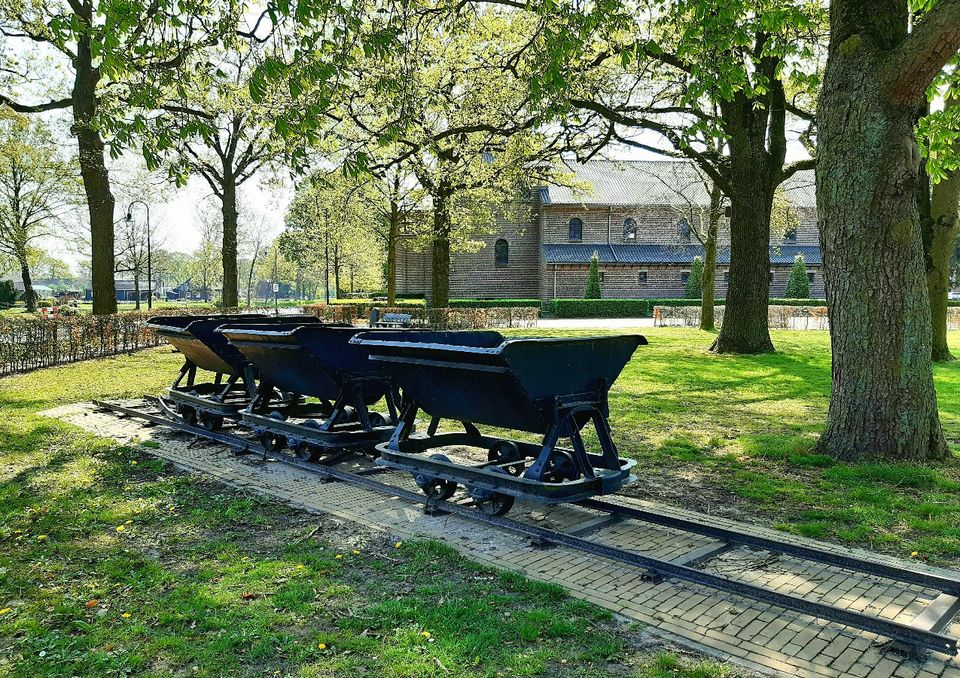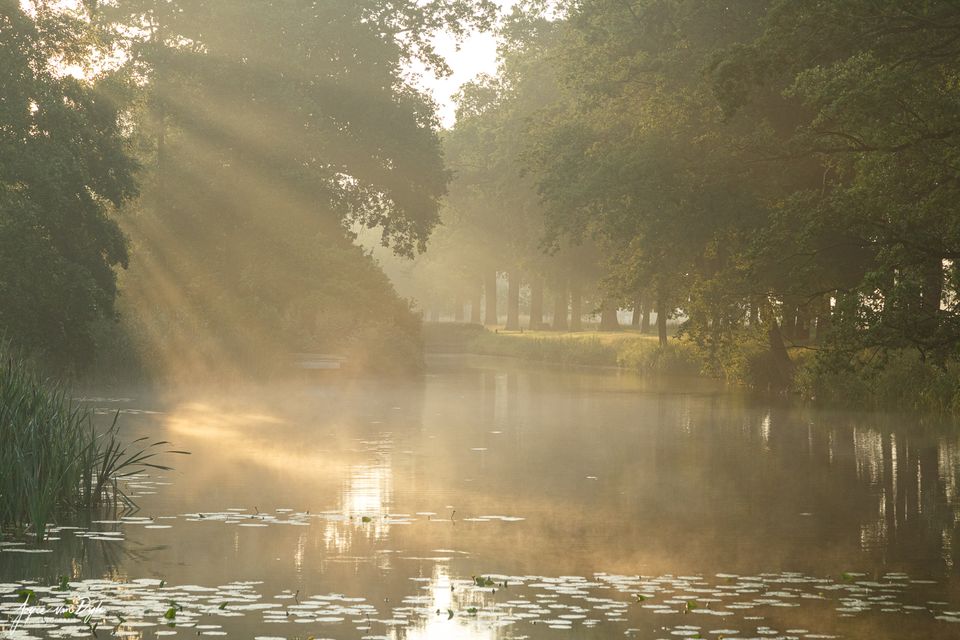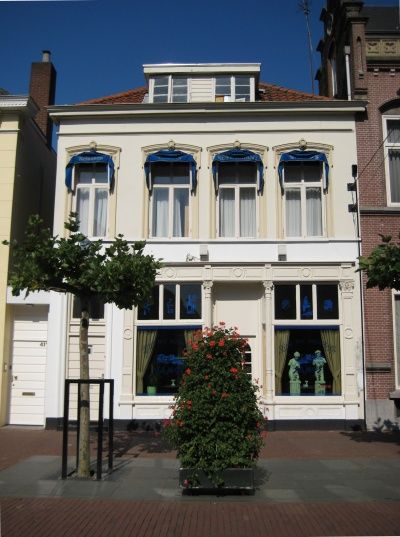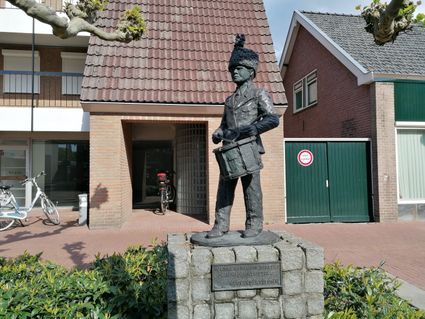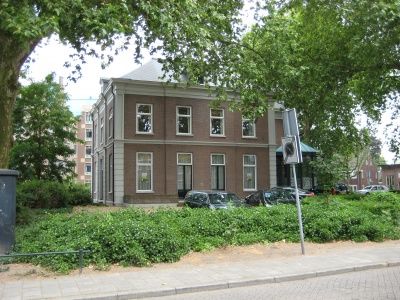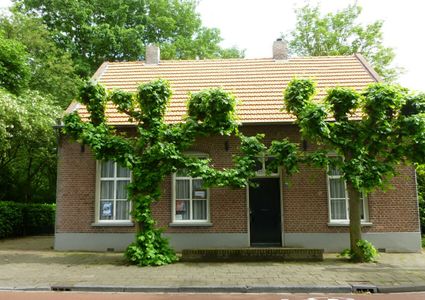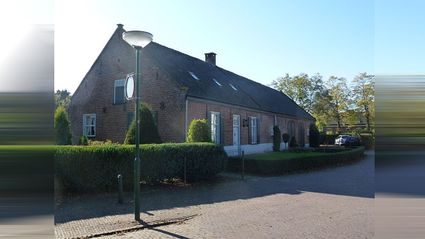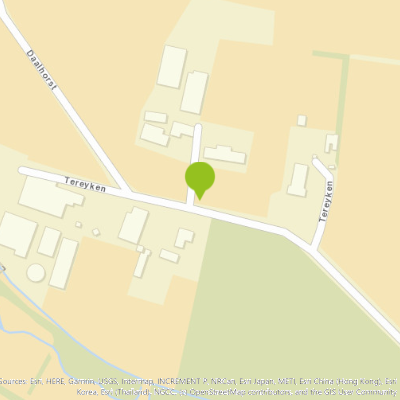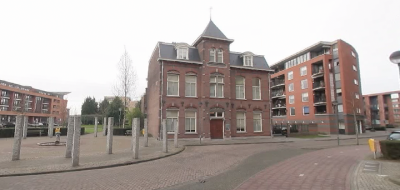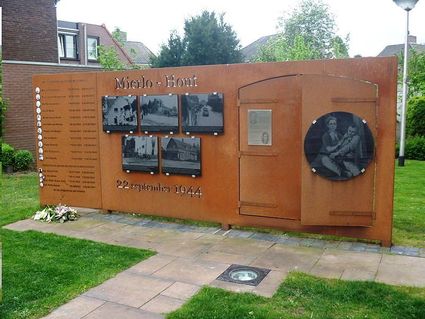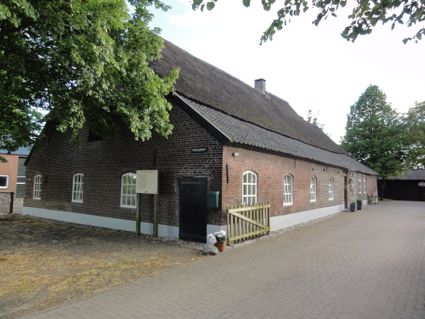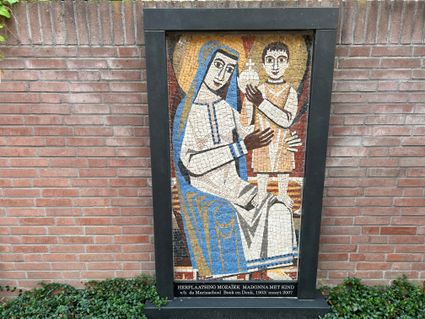Protected rural area Helenaveen
Neem contact op
Oude Peelstraat
5759 PC Helenaveen Plan your route
from your location
Helenaveen, situated next to the Deurne Peel and Mariapeel nature reserves, was created as a peat exploitation settlement in the middle of the nineteenth century. The village was named after Helena Panis, wife of Jan van de Griendt who, in 1853 together with his brother Nicolaas, bought 610 hectares with a view to cutting the peat found in this land. Their 'Naamloze Vennootschap Maatschappij tot Ontginning and Verveening der Peel, called Helenaveen’ public limited company, was founded especially to this end.
Trident system
The so-called trident system was used for the peat exploitation. This model called for three small canals being dug, each to lead to a side canal dug parallel to the Helenavaart Canal. It was directly connected to the main waterway, thus allowing the cut peat to be transported by ship.
Agriculture
The ground…
Helenaveen, situated next to the Deurne Peel and Mariapeel nature reserves, was created as a peat exploitation settlement in the middle of the nineteenth century. The village was named after Helena Panis, wife of Jan van de Griendt who, in 1853 together with his brother Nicolaas, bought 610 hectares with a view to cutting the peat found in this land. Their 'Naamloze Vennootschap Maatschappij tot Ontginning and Verveening der Peel, called Helenaveen’ public limited company, was founded especially to this end.
Trident system
The so-called trident system was used for the peat exploitation. This model called for three small canals being dug, each to lead to a side canal dug parallel to the Helenavaart Canal. It was directly connected to the main waterway, thus allowing the cut peat to be transported by ship.
Agriculture
The grounds that emerged after the top layer of peat had been cut were prepared for agriculture. Experiments to introduce mono-cultures such as buckwheat and tobacco were carried out. The large tobacco sheds (approx. 1870) at Geldersestraat stand as remembrance of this effort. Furthermore, peat litter production was started up as peat dust was removed from the peat lands. The peat litter factory (Rector Nuytsstraat 13a) built for this purpose still stands as witness of the era.
Facilities
The isolated location of the village called for the establishment of communal facilities, such as churches and cemeteries for the catholic and protestant residents, a vicarage and clergyman's house, as well as a school and teacher's house. These facilities were set up between 1857 and 1885.
Royal manors
Agriculture became the primary means of existence for the village after 1900. Between 1908 and 1913, five large farms, the so-called royal manors, were built along the Helenavaart to increase the agricultural production. They came about with the support of the Koning Willem III-foundation, founded in 1889.
Defence line
A number of machinegun casemates (built between 1934 and 1940) in Helenaveen and its surroundings recall the Peel defence line. The fact is that the Peel was considered to be an important military barrier. Helenaveen did suffer from World War II. For a long time in 1944, the front line was near the village, resulting in much devastation (a.o. the R.C. church; newly built in 1950). After 1945, quickly expanding greenhouse farming led to an increase of the population of the village, which resulted in the construction of a new, small-scale residential area.
Protected rural area
Helenaveen was listed as a protected rural area as it is the oldest example of a systematic private peat exploitation settlement in the south of the Netherlands, the various development phases of which are still very much visible.
Roman officer's helmet
The golden Roman officer's helmet that emerged in 1910 during excavation of peat near Helenaveen is also worth mentioning. The beautiful artefact can be viewed in the Dutch national museum of antiquities in Leiden. A little monument was set up at the spot where it was found.
Opening times
- Every monday open
- Every tuesday open
- Every wednesday open
- Every thursday open
- Every friday open
- Every saturday open
- Every sunday open
